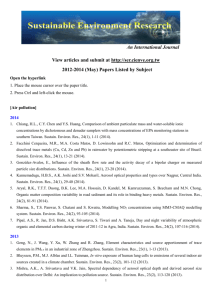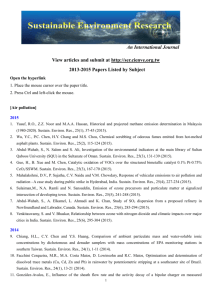Assessment Report Template, AY 2014-15
advertisement
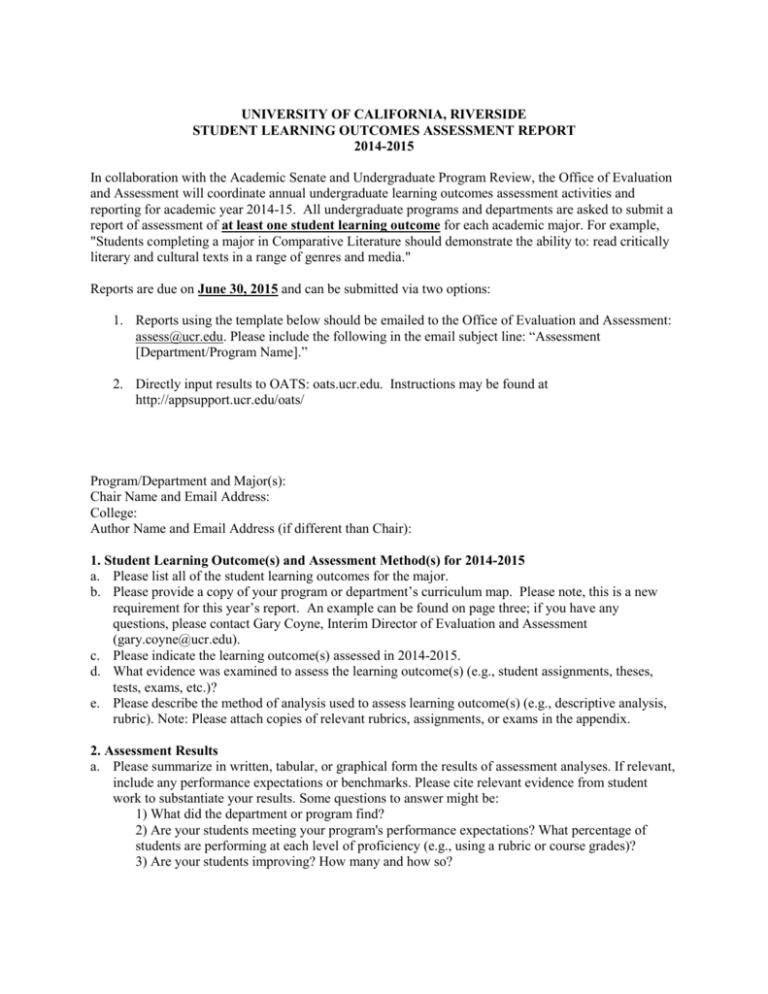
UNIVERSITY OF CALIFORNIA, RIVERSIDE STUDENT LEARNING OUTCOMES ASSESSMENT REPORT 2014-2015 In collaboration with the Academic Senate and Undergraduate Program Review, the Office of Evaluation and Assessment will coordinate annual undergraduate learning outcomes assessment activities and reporting for academic year 2014-15. All undergraduate programs and departments are asked to submit a report of assessment of at least one student learning outcome for each academic major. For example, "Students completing a major in Comparative Literature should demonstrate the ability to: read critically literary and cultural texts in a range of genres and media." Reports are due on June 30, 2015 and can be submitted via two options: 1. Reports using the template below should be emailed to the Office of Evaluation and Assessment: assess@ucr.edu. Please include the following in the email subject line: “Assessment [Department/Program Name].” 2. Directly input results to OATS: oats.ucr.edu. Instructions may be found at http://appsupport.ucr.edu/oats/ Program/Department and Major(s): Chair Name and Email Address: College: Author Name and Email Address (if different than Chair): 1. Student Learning Outcome(s) and Assessment Method(s) for 2014-2015 a. Please list all of the student learning outcomes for the major. b. Please provide a copy of your program or department’s curriculum map. Please note, this is a new requirement for this year’s report. An example can be found on page three; if you have any questions, please contact Gary Coyne, Interim Director of Evaluation and Assessment (gary.coyne@ucr.edu). c. Please indicate the learning outcome(s) assessed in 2014-2015. d. What evidence was examined to assess the learning outcome(s) (e.g., student assignments, theses, tests, exams, etc.)? e. Please describe the method of analysis used to assess learning outcome(s) (e.g., descriptive analysis, rubric). Note: Please attach copies of relevant rubrics, assignments, or exams in the appendix. 2. Assessment Results a. Please summarize in written, tabular, or graphical form the results of assessment analyses. If relevant, include any performance expectations or benchmarks. Please cite relevant evidence from student work to substantiate your results. Some questions to answer might be: 1) What did the department or program find? 2) Are your students meeting your program's performance expectations? What percentage of students are performing at each level of proficiency (e.g., using a rubric or course grades)? 3) Are your students improving? How many and how so? 3. Recommendations a. What are the implications of the assessment results (e.g. course change, requirements change, etc.)? Recommend actions to improve student learning with respect to the desired learning outcomes and a timeline for implementation. Actions may fall into any of these potential categories: 1) instruction, 2) curriculum, 3) course sequencing, 4) co-curricular support for student learning (e.g., tutoring, library instruction, etc.), 5) communicating expectations to students. 4. Implications of Proposed Changes Are there any resources needed to implement the above plans for improvement? How and where might the resources be obtained? 5. Proposed assessment plan for academic year 2015-2016 What learning outcome(s) do you plan to assess for the next academic year? What assessment method(s) and courses will you use to assess the proposed learning outcome(s)? 6. Oral Communication (WASC Core Competency) a. What are the expectations, if any, for majors in the department to develop skills in oral communication? Here, oral communication is defined as communication by means of spoken language for informational, persuasive, and expressive purposes. Oral communication may also employ visual aids, body language, intonation and other non-verbal elements to connect with the audience and convey meaning. Oral communication may include speeches, presentations, discussions, dialogue and other forms of interpersonal communication, either delivered face to face or mediated by technology. (If your department has no such expectations, simply explain that.) b. In what ways do students acquire the experience and skills needed to develop skills in oral communication prior to graduation? Please list any required courses with a significant oral communication component, whether they are offered by your department or another. (Again, if your department has no such expectations, please explain.) c. Are there any program-level student learning outcome(s) linked to the development of oral communication? Please list, the relevant student learning outcome(s). d. If the department has learning outcome(s) linked to oral communication, have they been assessed recently? What were the results? Please comment briefly here, or provide documentation from previous year’s assessment report(s). If your department or program has not yet assessed oral communication, is there a plan to do so? 7. Appendices Please list the documents you are attaching with your report, the file name if not included in this document, and a short description of what they are. Please include rubrics, assignments, exams, and other supporting documents. Example Curriculum Map for Environmental Sciences Major Relationship Between the Environmental Sciences Curriculum and Student Learning Outcomes (LOs) Course # Course Title LO 1 LO 2 LO 3 LO 4 LO 5 1 Intro. ES: Natural Resources I I I 1H Honors ES: Natural Resources I I I 2 Intro. ES: Environmental Qual. I I I I 2H Honors ES: Environ. Qual. I I I I 3 Issues in Environ. Sci. I I I 3H Honors: Issues in Environ. Sci. I I I 6 Intro. Environ. Economics I I 17 Environ. Impacts Urbanization I 92 Exploring Environ. Sci. I I I I 100 Intro. Soil Science P P P I 100H Honors: Intro. Soil Science P P P I 101 Water Resources P P P I 102 Intro. Atmospheric Science P P P I 104 Environ. Soil Chemistry D P P 107 Soil Physics D P P 120 Soil Ecology D P P 127 Fate Transport Contaminants D P P 133 Environ. Microbiology D P P 134 Soil Conditions Plant Growth D P P 135 Chemistry of Atmosphere D P P 136 Chemistry of Natural Waters D P P 140 Limnology D P P 141 Public Health Microbiology D P P P 142 Water Quality D P P P 143A Environ. Economics D P P 143B Natural Resource Economics D P P 143C Ecological Economics D P P 144 Solid Waste Management D D P P 155 Principles of Bioremediation D P P 163 Hydrology D P P 170 Workshop Environ. Manage. D D D D P 172 Environ. Impact Analysis D D D D P 174 Environ. Law D D P 190 Special Studies D D D D D 191 Professional Development D D 197 Research for Undergraduates D D D D D 198-I Internship in Environ. Science D D D D D I = Introduced P = Practiced D = Demonstrated Learning Outcomes: 1 = Basic Knowledge of Air, Water, and Soil Resources 2 = Basic Knowledge of Socioeconomic Aspects 3 = Ability to Solve Problems in Scientific Manner 4 = Communicate Effectively Concerning Environment 5 = Identify and Pursue Professional Objective
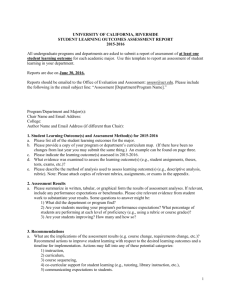
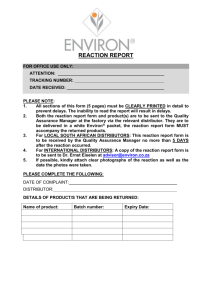
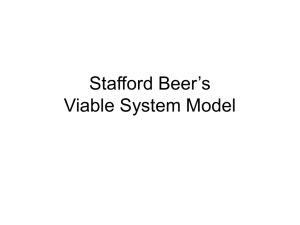
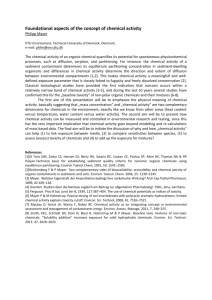
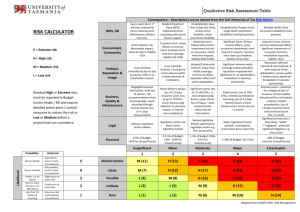
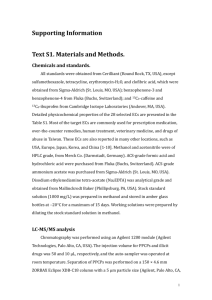
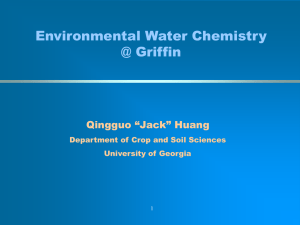
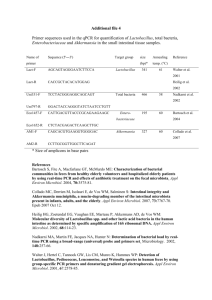
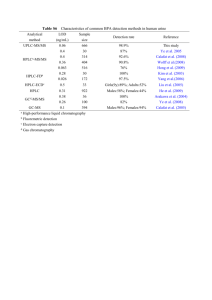
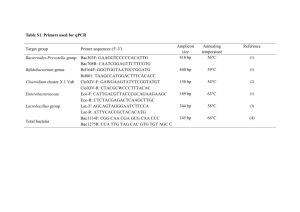
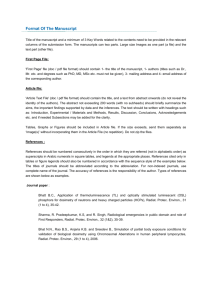
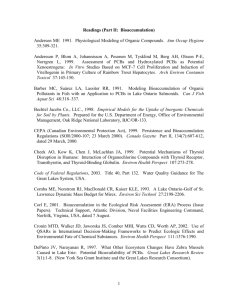
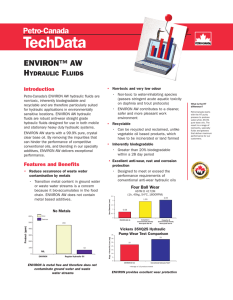
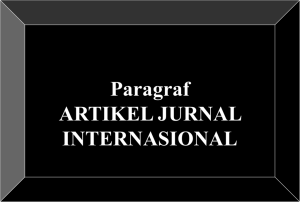
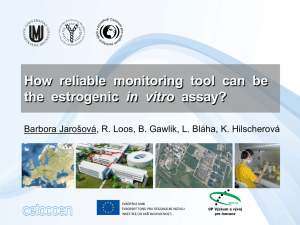
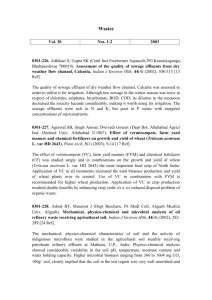
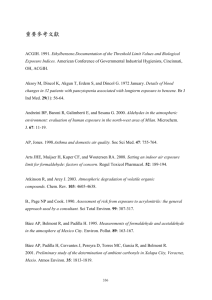
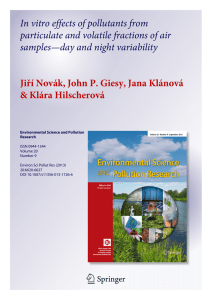
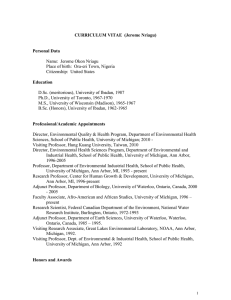
![Predicted No-Effect Concentration and Risk Assessment for 17-[Beta]-Estradiol in Waters of China](http://s2.studylib.net/store/data/012071191_1-bc948a0603f30c4c02dbdb6968f75380-300x300.png)
